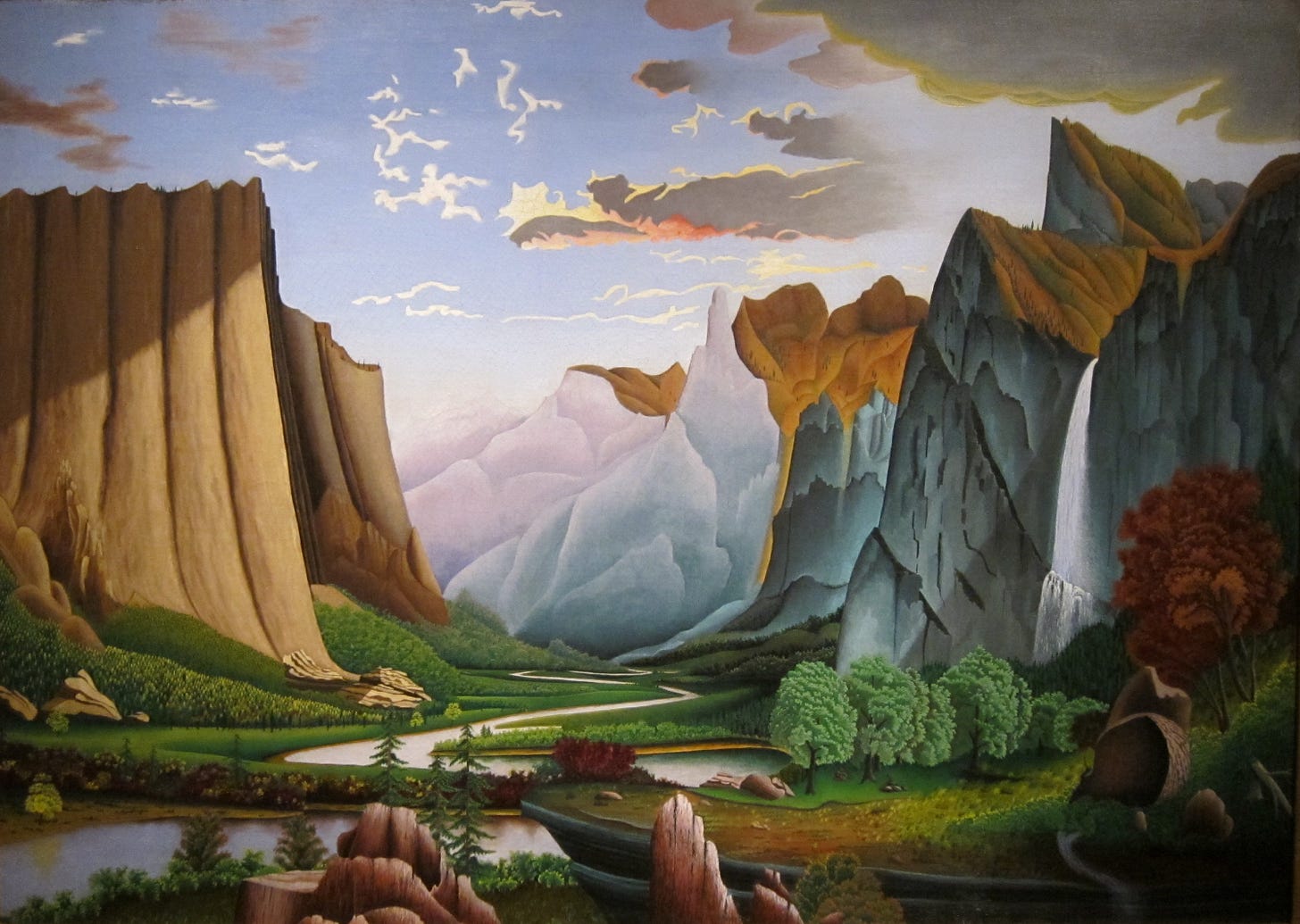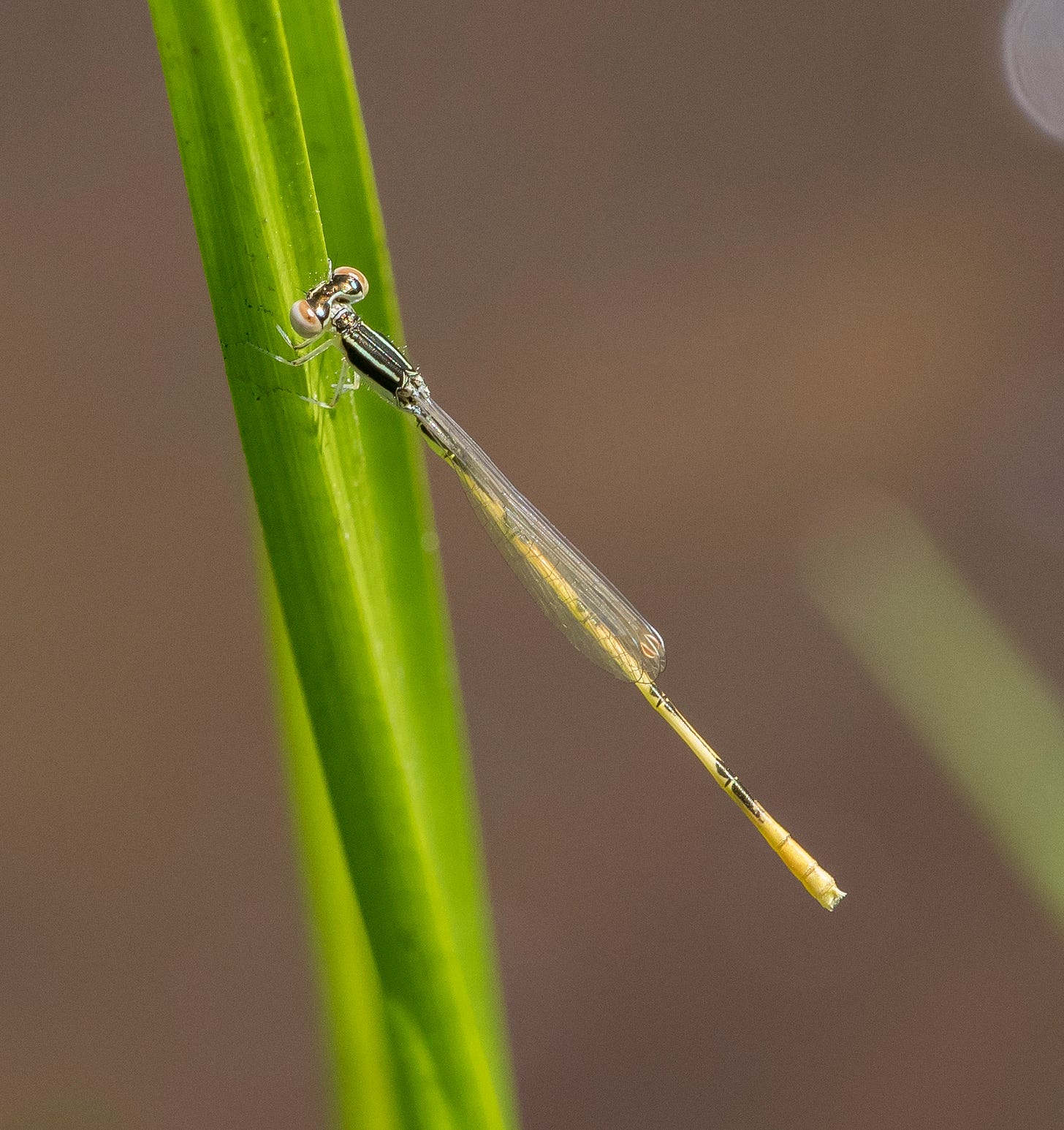Margin for error
Losing track and gaining ground
There’s an audio version of this essay, read by yours truly, just up there ⬆️ coming to you this week with some notable tonal shifts. My high-tech recording gear may or may not include a pillow fort and crossed fingers. Thanks for rolling with it.
Just before we were meant to leave on a three-week family vacation out west, my youngest brother lost his appendix. His urgent surgery delayed our departure by several days, which frustrated our mother, who was nothing without a solid plan.
For most of the trip, with stitches in his side and our father barking at him to stand up straight, my 13-year-old sibling walked hunched over. When he and his fresh incision lost their footing at the edge of the Merced River in Yosemite, I watched him slip into the current, his face turned to the sky. I screamed the helpless scream of an eleven-year-old girl, and our father came running from the motel in boxer shorts. Once he was sure no one was dying, there was more scolding.

Dad often expressed fear as anger, and my brother was accident-prone, which made for some complicated years. I, on the other hand, had a habit of losing track of things: time, my sense of direction, a jacket draped over a chair. Losing the bracelet from that same vacation, with its turquoise stones set in silver like tiny clerestory windows, broke me down. In confession to my mother, I sobbed myself into fits of hiccups, sure I would never again be trusted with anything valuable.
Our personalities shaped who we were together and whether we saw ourselves as capable or careless, trustworthy or suspect.
I return to those early dynamics now, in my effort to make sense of what we are losing collectively, and what we might still recover in a time when intentions no longer shield us from scrutiny, and when the margin for error feels narrower than ever. I keep wondering what kind of people we become when someone tells us we’ve gotten something wrong.
In my early twenties, I worked as a counselor at the same summer camp I’d once attended as a child. I didn’t question its traditions: cabins named after Native American tribes, end-of-session ceremonies in which the white, senior staff wore headdresses and face paint to reenact “Indian rituals.”
One summer, I was reassigned without explanation from the Arts & Crafts post I’d always loved. I assumed it was a scheduling error and simply swapped shifts with another counselor. Days later, someone finally pulled me aside to tell me that I’d been moved because they believed I was stealing supplies.
What I had done, in fact, was fail to record a few materials used while making sample crafts for my campers. Where a simple conversation would have cleared things up, instead a final judgment was rendered. I finished the summer, but I never went back.
What stayed with me wasn’t just the accusation, but also the way it was delivered. No benefit of the doubt, no effort to understand my actions, just a foregone conclusion based on a series of erroneous assumptions.
Years later, in a very different context, I used the word tribe during a meeting, referring to a close circle of friends and colleagues. A younger coworker messaged me afterward to gently suggest I consider choosing a different term. Her tone was kind, but I still felt exposed. I apologized and meant it, but I also spent that night turning it over in my head, trying to reconcile the casualness of my language with the weight of what it might carry for someone else.
This is the work of now. Beyond good intentions, this season demands that we reexamine old assumptions and hold ourselves accountable in ways that are rarely comfortable. Amid the daily onslaught of injustice and grief, those of us who want a more inclusive, compassionate world are required to stay vigilant. It can feel more urgent—maybe even more manageable—to focus on the missteps within our reach. When so much is beyond our control, naming what is within it can be a form of action, even healing.
And still, I wonder how we move through all of this without treating one another as adversaries. Because while we are debating language, impact, and tone, darker forces are at work. These kinds of reckonings exist on the same continuum as larger harms—systems built on abuses of power.
Masked individuals in unmarked vehicles are taking people from our communities without explanation or due process. A colleague, originally from South Asia, is afraid to leave her apartment in D.C. for fear of being mistaken for an undocumented immigrant. Another describes, in tears, the parents and neighbors lining the streets in a show of support so their children can walk to school safely, even as ICE raids take place nearby, even as armed National Guard troops patrol the area.
I want to shout with the full force of sixty years behind me. Everything about me rebels against this. Yet, I know that anyone supporting such activities, or ignoring them, would be instantly defensive if I confronted them. People don’t shift their views when they feel cornered. What makes change possible, I think, is an invitation to see differently, without being cast as a failure.
So I ask myself, time and again, when is it necessary to speak out? Can it be done in a way that leaves room for real conversation or invites something to be discovered, not just defended? Do I owe care to someone who seems unwilling to offer it in return?
If anything binds these stories, the bracelet and the bureaucracy, the girl and the woman, it’s this: What we resist usually reveals what we’re most afraid to lose. Trust. Autonomy. The ability to move through the world with a sense of safety. To speak and be heard. To shape the direction of our own lives. We cling to these not just as privileges, but as rights. Some losses are necessary for progress, and progress is rarely linear. But these? These are the bedrock. They are not meant to be negotiable.
I live in Talbot County, Maryland, where Frederick Douglass was born into slavery. Nearby, Harriet Tubman guided her family and neighbors to freedom through the marshes and waterways of Dorchester. Long before them, the Choptank, Nanticoke, and other Indigenous peoples lived in deep relationship with this land, until they were forced out by colonial settlers. The Appalachian mountains to my immediate west, older than the peaks we admired on that long ago vacation, were shaped by ancient collisions and worn down to soil. Our landscapes and our histories are more complex than we can see.

Yesterday and the day before, I noticed a flying friend navigating a small patch of my garden, its body the size and shape of a sewing needle. A Citrine Forktail damselfly, delicate and yellow, its diaphanous wings were invisible in flight. I watched it thread the air between strands of a spider’s web without getting caught.
I do not think it possible to avoid difficulty.
We have spent millennia drawing lines between the so-called worthy and unworthy, civilized and savage, citizen and other. If we are serious about dismantling the systems that divide and endanger us, we must take responsibility for the roles we play in upholding them. We can speak up, and also listen. We can resist the rush to judgment. We can ask better questions.
And in this crucial moment—this fragile moment when the soil of a different future is taking shape—we can find ways to do no further harm.
~Elizabeth
Thanks so much for reading. I hope you’ll join me and others in the comments to talk about losses that changed you, what you’re clinging to these days, what helps you find your way.
Today’s piece was sparked, among other things, by the “Lost and Found” prompt from Caravan Writers Collective, If it spoke to you, I hope you’ll share it, restack it (♻️), or let me know by clicking the 💚.
Paid subscriptions and one-time donations are always welcome, but never expected. They help me keep showing up here to do this work and to make sure it can be free for everyone, even those for whom $5 a month is out of reach.
Thanks for being part of this space.




Just yesterday, as I was entering aisle 2 at our Publix food center, I noticed a young attractive lady.. very diminutive... and looking very needy.. She obviously was from another culture and her English was kind of broken... Her smile stopped me.... with her fingers pointed upward... as her eyes searched the top shelf... She asked, with a most beautiful smile..." would you see if there are two bogo lce cream packages? I cannot reach high enough " It happened that I was tall enough and guess what..... I was able to recover 2 packages for her... It made her day and instantly she said, "thank you for being my arms and hands.."
In a moment's time, two complete strangers, exchanged the acceptance of cultures... smiles... and love.. Betsy... Everybody has stopped reaching somewhere others can't reach... and offering love and peace rather than hatred and violence..... I choose to look for "aisle 2" everywhere I go..looking for ANYONE who can use my arms and hands "
Thank you for reminding me the impact of words. That they can be just as wounding as sticks and stones. That they can provide comfort.
Words and tones…